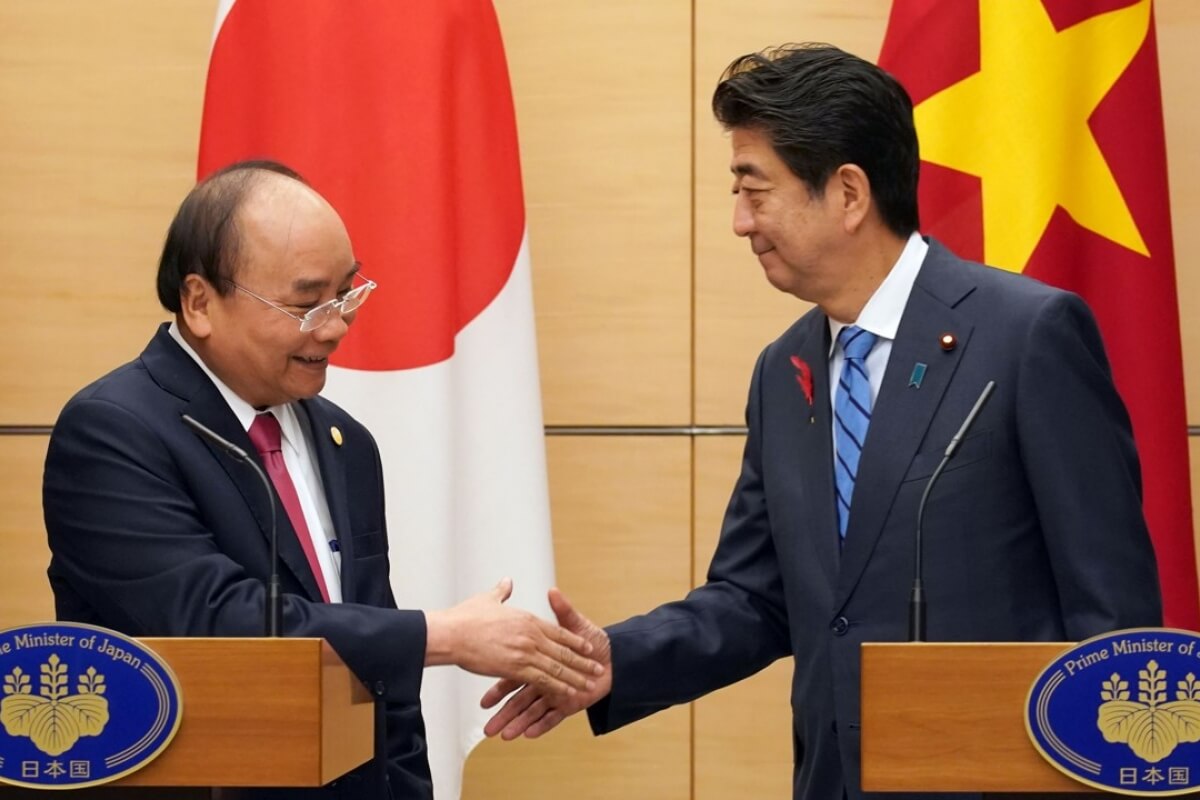Earlier this month, the first protocol to amend the ASEAN-Japan Comprehensive Economic Partnership (AJCEP) came into effect. It is said to promote trade and investment between Japan, Myanmar, Vietnam, Thailand, Laos, and Singapore, and was Japan’s first multilateral free trade agreement.
The ongoing trade war between China and the US and pushed Japan to shift its some of its business interests and ventures to ASEAN members, with Vietnam emerging as a frontrunner. A survey conducted by the Japan Bank of International Cooperation (JBIC) in 2019 revealed that about 56% of Japanese firms sought to expand their business with ASEAN states, particularly in Vietnam, Indonesia, and Thailand. According to a Japan External Trade Organisation (JETRO) survey, 64% of Japanese enterprises plan to expand their operations in Vietnam, and an overwhelming 43% said Vietnam was their first choice of relocation from China. Vietnam placed higher in preference to other Southeast Asian nations such as the Philippines and Indonesia in attracting foreign investment from Japan.
As of 2019, more than 13,000 Japanese companies are operating in Southeast Asia. The Japanese government is extending loans to national businesses to expand their production in Southeast Asia to diversify their supply chains and make it more resilient following the coronavirus pandemic. Japan is also rolling out a high-tech data system to digitize the production system and increase the efficiency of its trade endeavors with the ASEAN. Therefore the AJCEP is yet another step taken by Tokyo in its goal of facilitating better economic and trade relations with Southeast Asian countries.
As of 2018, Japan is the largest foreign investor in Vietnam, with investments totaling $9.11 billion, accounting for a quarter of the total investments in the country. The majority of Japanese investments in Vietnam focus on manufacturing, infrastructure, and the energy production industry. However, in the recent past, Hanoi is also attracting investments in consumer goods, retail, and hospitality services from Tokyo.
Before the AJCEP, Vietnam and Japan signed a bilateral Economic Partnership Agreements (EPA) called the Vietnam-Japan Economic Partnership Agreement (VJEPA), which came into force in 2009. The VJEPA prioritises bilateral trade and investment and co-exists with the AJCEP, and businesses can choose to apply to either of the two FTAs.
To attract Japanese investments, Vietnam has committed to providing Japan with more market access, and has relaxed rules on people’s movement from a number of industries and services. It is also scheduled to altogether remove restrictions on cross-border supply of legal, accounting, medical, and computer-related services.
That being said, although Japan is seeking out Hanoi as a significant base for expanding investment, it may not be economically beneficial for Vietnamese workers. A primary reason is attributed to lower wages and salaries caused by the Covid-19 pandemic. Furthermore, Japanese businesses do not exclusively employ Vietnamese employees, and many opt for South Korean candidates to head their operations. Furthermore, according to a recruitment agency, Navigos Search, the coronavirus pandemic has caused several Japanese companies to stop recruitment plans and could pose an impediment to Tokyo’s new investments.
ASEAN-Japan Comprehensive Economic Partnership Comes Into Effect
Vietnam leading destination for Japanese investments, but may not create jobs for locals
August 20, 2020

Vietnam Prime Minister Nguyen Xuan Phuc (left) and Japan Prime Minister Shinzo Abe shake hands after their joint press conference in Tokyo in 2018. SOURCE: AFP
